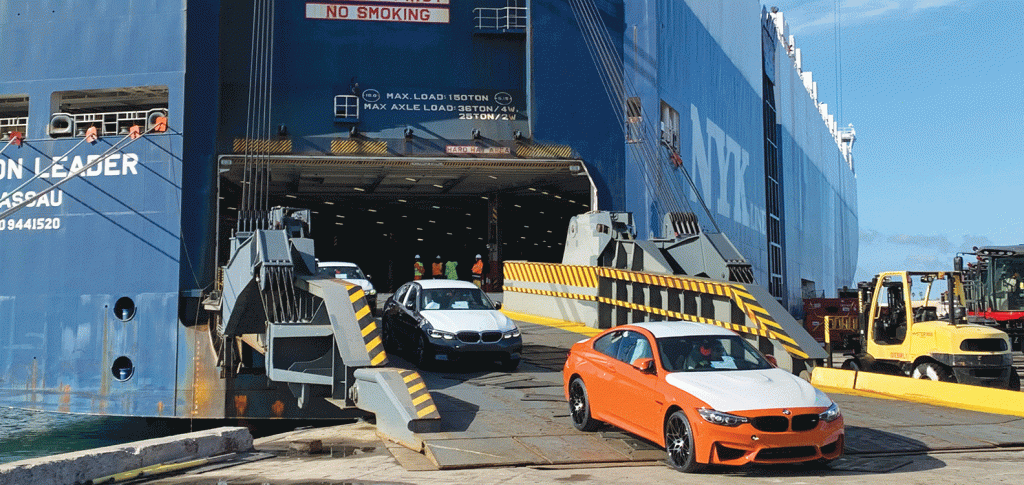Port of Hueneme reports strong comeback from pandemic shutdowns

Business at the Port of Hueneme has exceeded its management’s expectations during the COVID-19 pandemic, port officials said Oct.15 at the Oxnard Chamber of Commerce’s annual “State of the Port” address.
When the shutdown started in March, all 10 of the automobiles manufacturers that use the port stopped production of cars. The auto-cargo industry accounts for 55 percent of the port’s revenue through imports and exports.
“It was a little bit of a shock to the system to say the least,” said Kristin Decas, the Oxnard Harbor District’s CEO and port director.
As a result, the port projected huge losses in the auto-cargo sector. So far into fiscal year 2021, however, the port is seeing tremendous signs of recovery. The auto-cargo industry is down only 8 percent from the end of last year, well above the port’s projected 28 percent decline.
The fruits-cargo trade is up 4 percent, while total port revenue is down 8 percent. The port’s projections had revenue down 31 percent for fiscal year 2020-21.
“We’re holding on strong and I think this is a good story for the community, because we’re going to be able to keep people working and being able to reinvest in our infrastructure,” Dacas said.
The port has also reduced its debt in recent years. The Harbor District, which owns and operates the port, took on a $35 million bond debt in 2006 and has reduced that debt to $8 million, with a projection of $6 million by the end of the current fiscal year.
“We’re in a very healthy fiscal situation here at the Port of Hueneme. Our bank book looks good,” Decas said.
The port peaked in cargo and revenue in the 2018-19 fiscal year, with 1.65 million tons and about $18 million in revenue. Revenue was down 1.8 percent from 2018-19 to 2019-20, a small change despite the pandemic that struck in the final quarter of the 2019-20 fiscal year.
“Despite being up against COVID and some pretty big challenges, we didn’t see much of a dip in cargo and revenue, and that is good for our community because it means it can support us economically with good paying jobs and invest in our environment,” Decas said.












